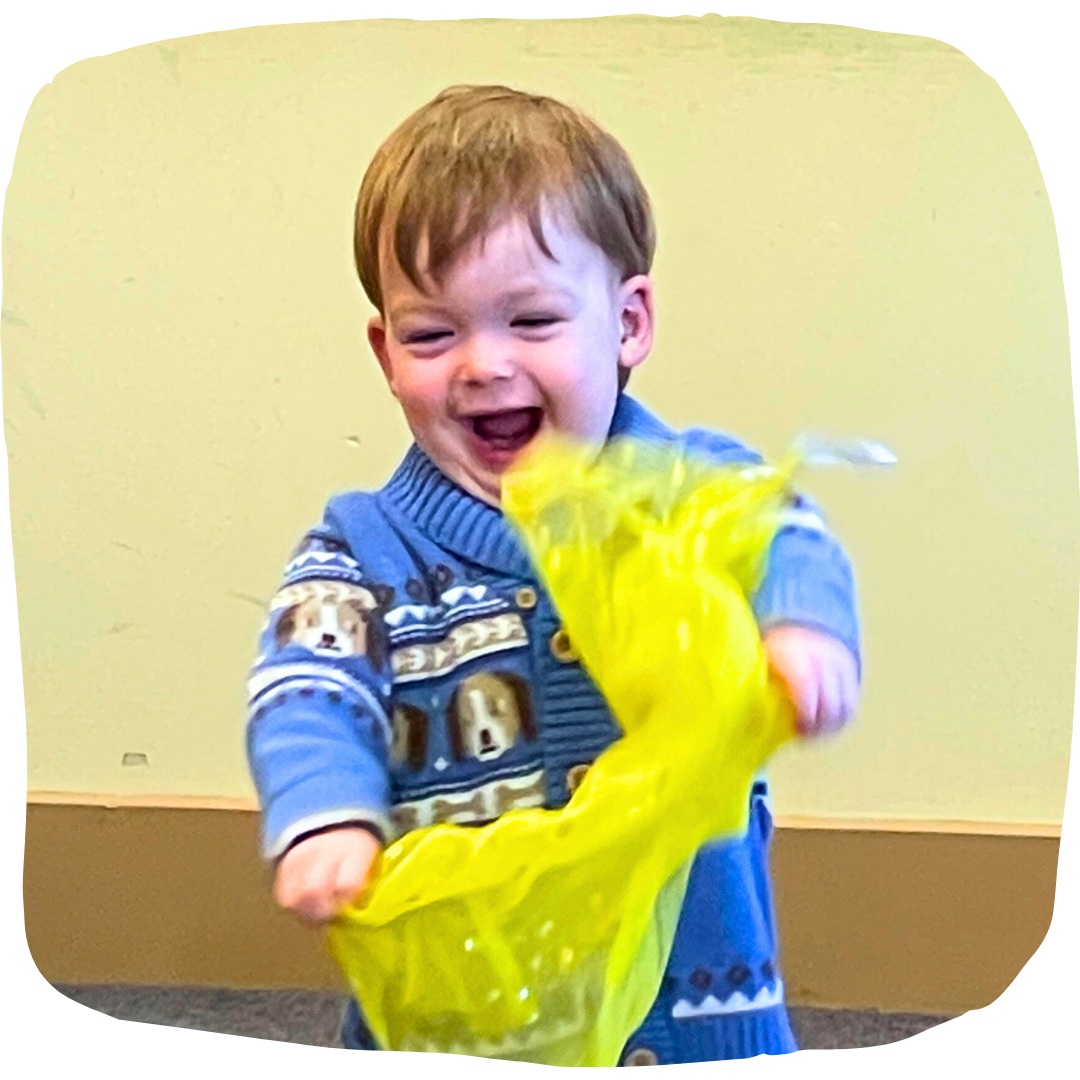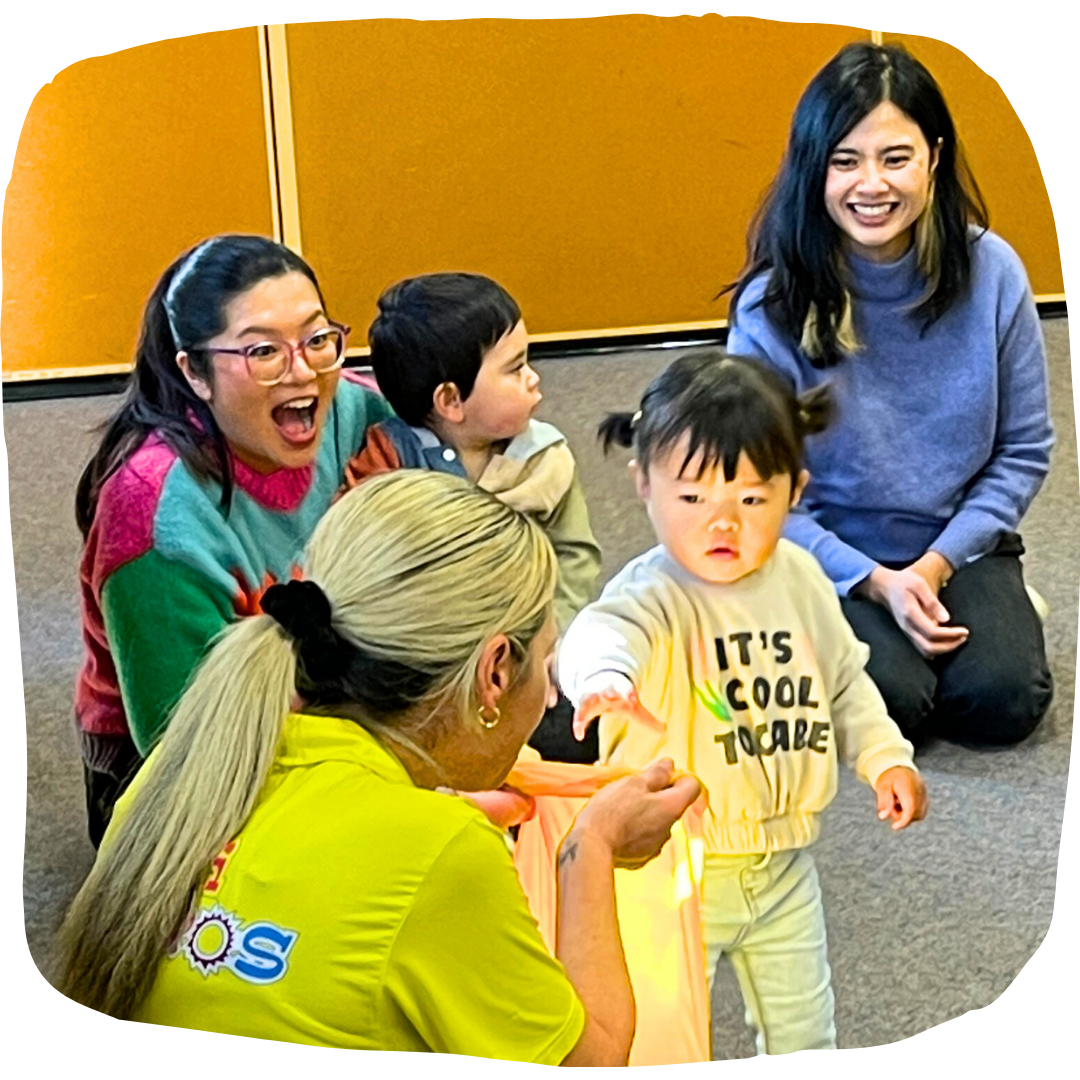Benefits
Mini Maestros Music and Movement classes….

Stimulate the entire brain…
help develop…
• speech and vocabulary
• listening skills
• movement skills, both gross and fine motor
• social skills
• cognitive skills
and are FUN!
Children participating in Mini Maestros classes…
Children participating in Mini Maestros classes…
• get creative
• get physical
• experience emotions
• experience cultures
• learn social resilience
• build confidence and self expression…
and gain a life-long appreciation of music and… have FUN!

Whole Child Development
Learning music is unlike learning anything else. This is because making music involves multiple components of the central and peripheral nervous systems including those associated with gross and fine motor skills, emotions, memory, intellect, paying attention, processing expectations and rules, relationships, creativity and cultural values. Making music is ‘superfood’ for a child’s developing brain.
Participating in musical activities is different from practising other activities because musicians – even very young ones – are constantly learning and making new music, thereby stimulating the entire brain. Applying, practising and seeking to improve a learned skill – such as a physical skill – does not have the same affect. Musicians continue to learn, and that learning stimulates ongoing development of the entire brain.
Learning music promotes whole child development as it helps children develop speech and vocabulary, listening skills, motor skills, social skills and cognitive skills. Because neural activity is at its highest and fastest before the age of 6, babies and toddlers who actively learn music are in a much better position to achieve their learning and development milestones.
Music education also unleashes a child’s creative powers.
Mini Maestros is a structured program and it is this structure that creates a safe platform from which learning can occur through creative exploration into discovery. Mini Maestros aims to give children experiences which will:
- aid their physical development through activities which encourage development of gross and fine motor skills and coordination and relaxation techniques. Each lesson contains many opportunities for children to practise various gross motor skills such as jumping or hopping. Fine motor skills are practised through the use of finger plays with younger children and the playing of percussion instruments with the older children. Children are able to practise the skills introduced at their own level but they have the group support, which encourages them to strive for achievement in all skill areas.
- enhance their emotional development through activities which require emotional expression, role playing, dramatization sharing taking turns and allow children to feel emotional satisfaction through fun, play, wellbeing and achievement in musical activities.
- encourage their intellectual development through activities which will help children develop an understanding of music being a combination of these elements: beat, pitch, dynamics, harmony, melody, rhythm, tempo, tone colour, and form.
- allow them to experience group participation and thereby develop self-control, discipline and the skills of sharing and taking turns. Group participation also provides opportunities where children can experience feelings of success which assists the developing a child’s self-confidence.
- provide opportunities for the creative participation of each child by encouraging children to make musical decisions (e.g. which instrument would be the best to accompany this lullaby?) and to contribute and share ideas in simple and fun improvisation activities.
- relate to their present cultural heritage and future experiences.
Nurturing Confidence and Joyful Discovery
Confidence to speak in front of a child’s peers and teacher, confidence to participate in a classroom environment, confidence to share time and resources with others and confidence to perform in front of others are critical skills in today’s competitive environment.
Emotional wellbeing is also critical in building resilience, appreciation of the environment in which we live and an ability to reach out to others.
Enhancement and encouragement of a child’s normal development, setting the spark which ignites a child’s need for educational challenge and cementing the building blocks of learning and participation skills are equally vital.
Mini Maestros uses a program of music and joyful discovery to encourage confident happy learners.
